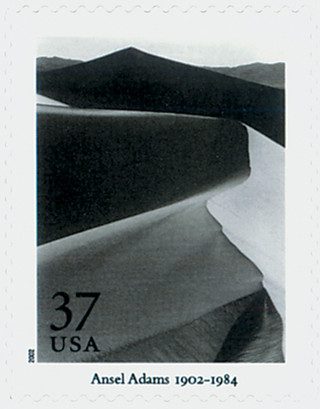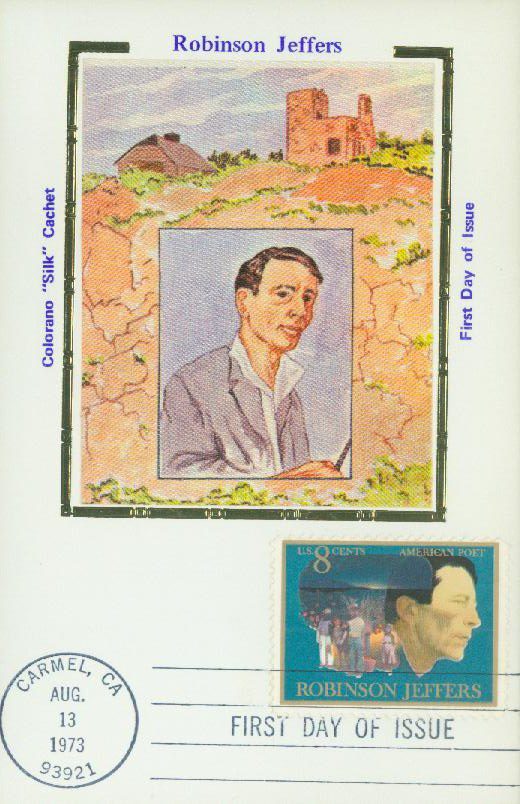
John Robinson Jeffers was born on January 10, 1887, in Allegheny, Pennsylvania. He was a prolific, yet controversial poet who captured the natural beauty surrounding his home in Carmel, California.
Jeffers spent time in Europe when he was a child and attended schools in Germany, France, and Switzerland. He was a remarkable student and earned his bachelor’s degree from Occidental College when he was 18. Jeffers enjoyed spending time outside and was part of his school’s literary societies.
Jeffers then went to the University of Southern California to study literature and medicine. He then spent a semester at the University of Washington in Seattle, where he studied forestry. Jeffers returned to California and got married, settling in Carmel. He built their granite home, which they named Tor House (a tor is an outcropping of stone that rises above a hill summit or ridge crest). Jeffers learned stonemasonry from a local builder and continued to expand on the house throughout his life. He would write in the morning and build in the afternoons. Stone and building became common subjects of his poems.
Jeffers drew inspiration from the great beauty of this. He won fame with Tamar, a collection of his verse published in 1924. His format and subject matter (such as murder) were controversial. Yet he was also recognized for his talent at writing long narrative epics, earning comparisons to the ancient Greeks. Jeffers had always had an intense interest in nature and his poems reflected his preference for the natural world, often conveying human civilization as apocalyptic. He also rejected the use of meter (an established rhythmic structure), instead opting for what he called “rolling stresses.”

Jeffers also coined the word “inhumanism.” Frequently expressed in his poetry, inhumanism is the belief that mankind is too self-involved and doesn’t give enough attention to the “astonishing beauty of things.” He described inhumanism as “a shifting of emphasis and significance from man to ‘notman’; the rejection of human solipsism, and recognition of the trans-human magnificence… This manner of thought and feeling is neither misanthropic nor pessimist… It offers a reasonable detachment as rule of conduct, instead of love, hate and envy… it provides magnificence for the religious instinct, and satisfies our need to admire greatness and rejoice in beauty.”
Jeffers’s popularity was at its peak in the 1920s and 30s. He continued to publish successful collections and his adaptation of Euripides’s tragedy Medea was adapted into a successful Broadway play. Other notable works include Roan Stallion, Dear Judas, and Be Angry At The Sun. In 1932, he became one of just a few poets at the time to be featured on the cover of Time magazine.
Jeffers strongly opposed US participation in World War II, and criticized American policy in The Double Axe and Other Poems (1948). The book received widespread negative reviews and Jeffers was thereafter censored in the media and never achieved widespread popularity again. He continued to write until his death on January 20, 1962. His poetry has been described as “hard to love, hard to forget.”
Jeffers’s poems have been translated in to several languages and are especially popular in Japan and the Czech Republic. Several modern authors have cited Jeffers as a major influence. A portion of his poem “The Beaks of Eagles” was included The Beach Boys’ song “California Saga.” He’s also been referenced in a variety of films and other works. Jeffers’s Tor House was preserved and is on the National Register of Historic Places.
| FREE printable This Day in History album pages Download a PDF of today’s article. Get a binder or other supplies to create your This Day in History album. |
Discover what else happened on This Day in History.





Any links to his works?
https://www.poetryfoundation.org/poets/robinson-jeffers. Enjoy!
Another small blooper. LOL California Statehood should have #3438 not the year 2000 under it. LOL S’OK accidents happen. Love these articles so keep them coming.